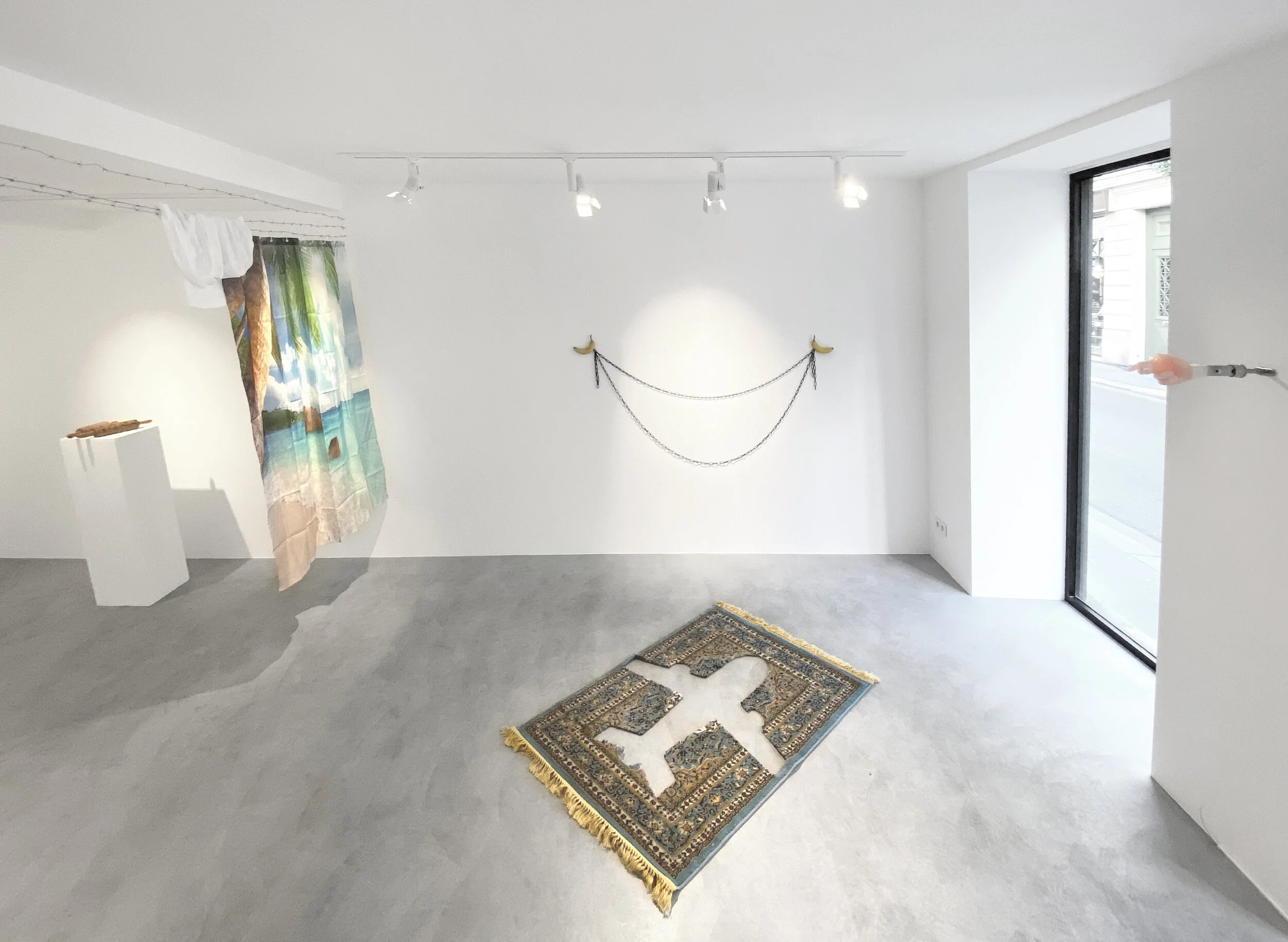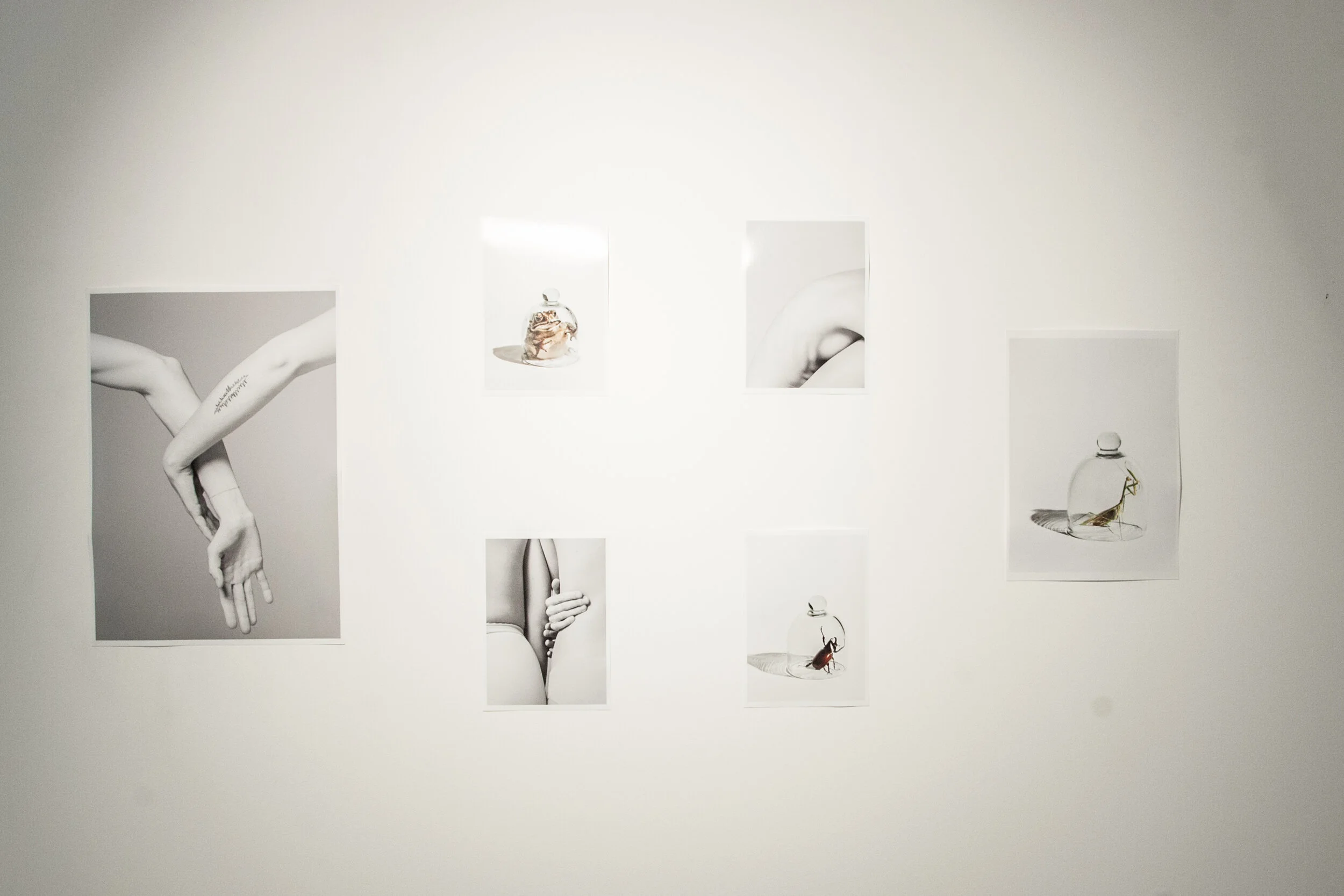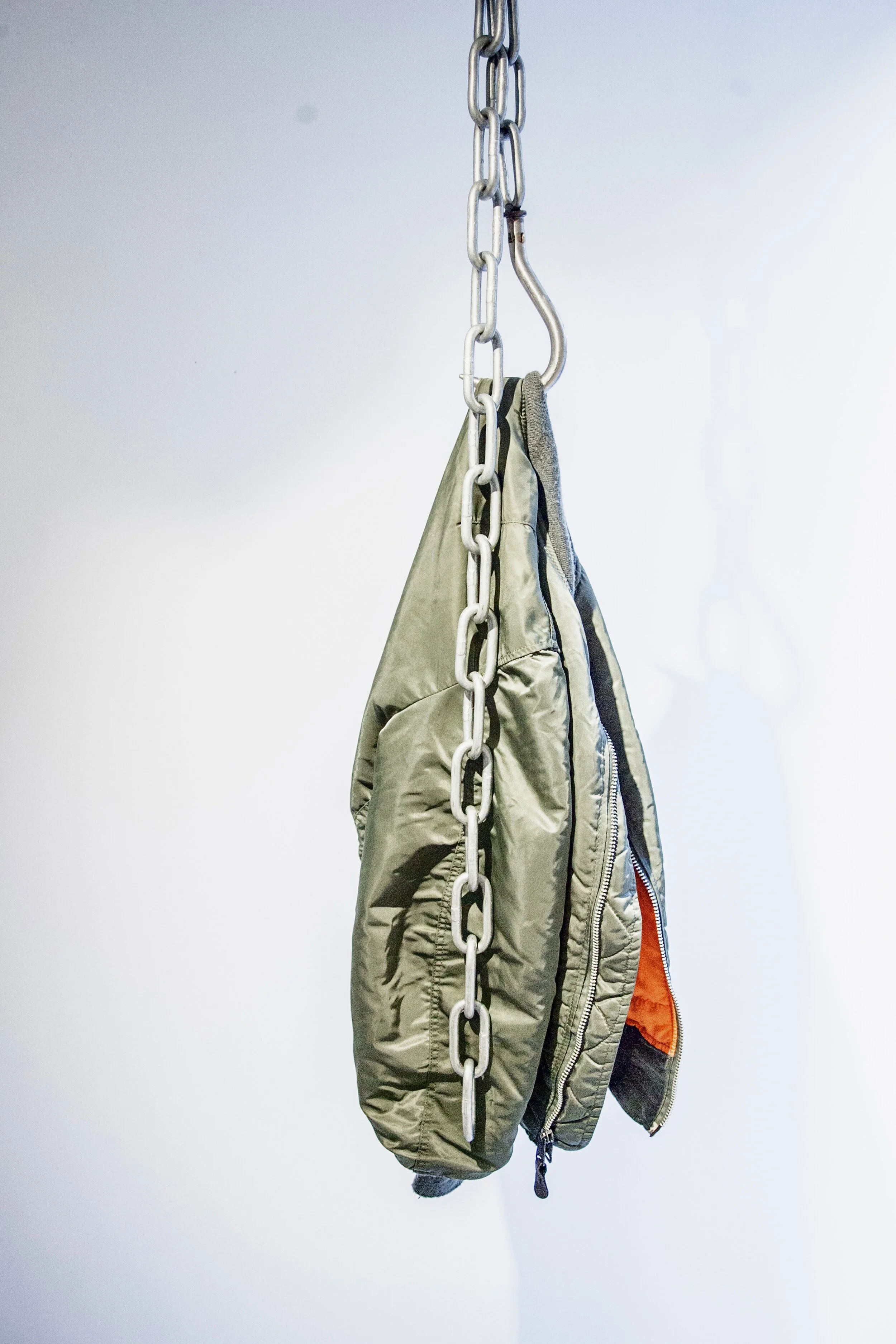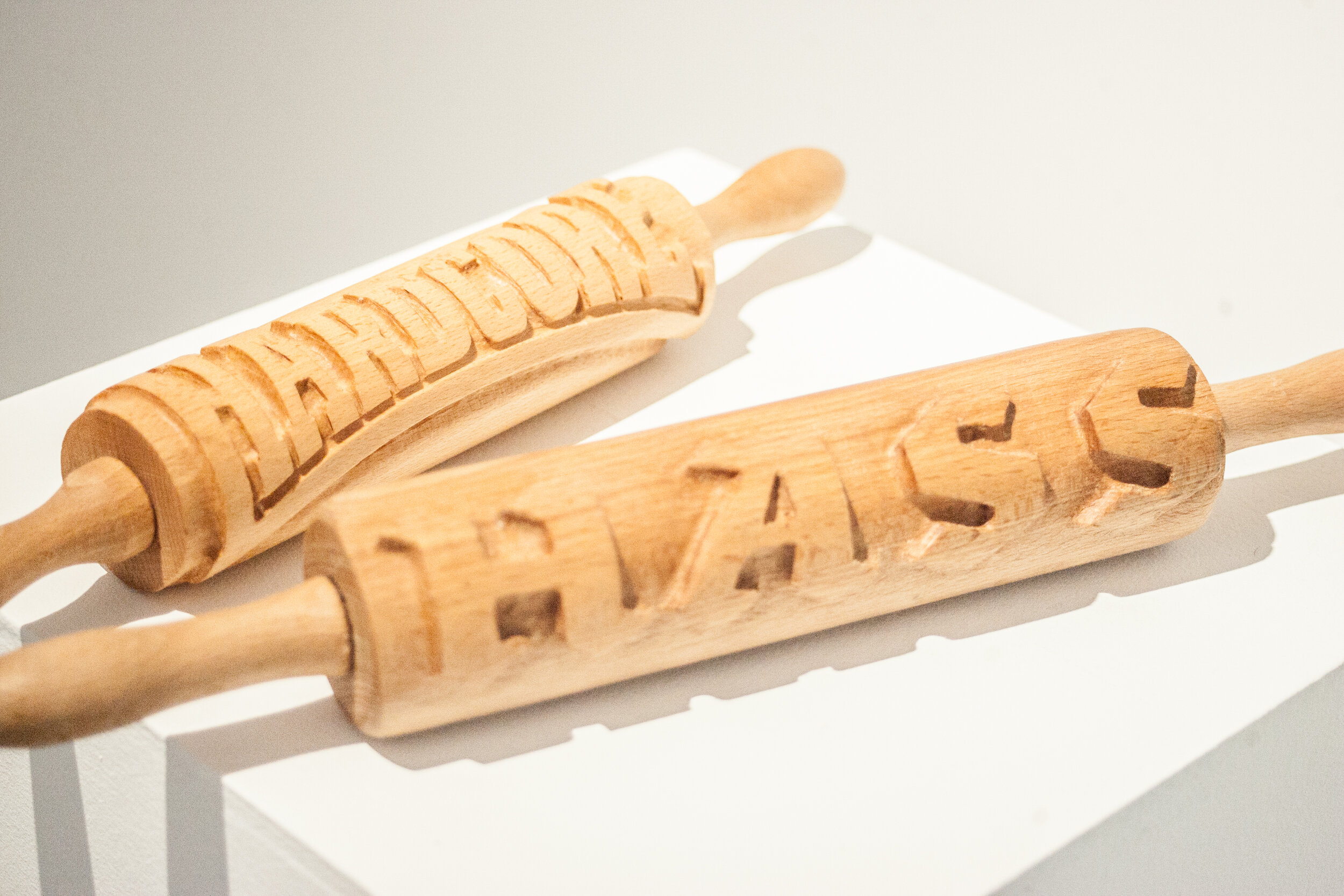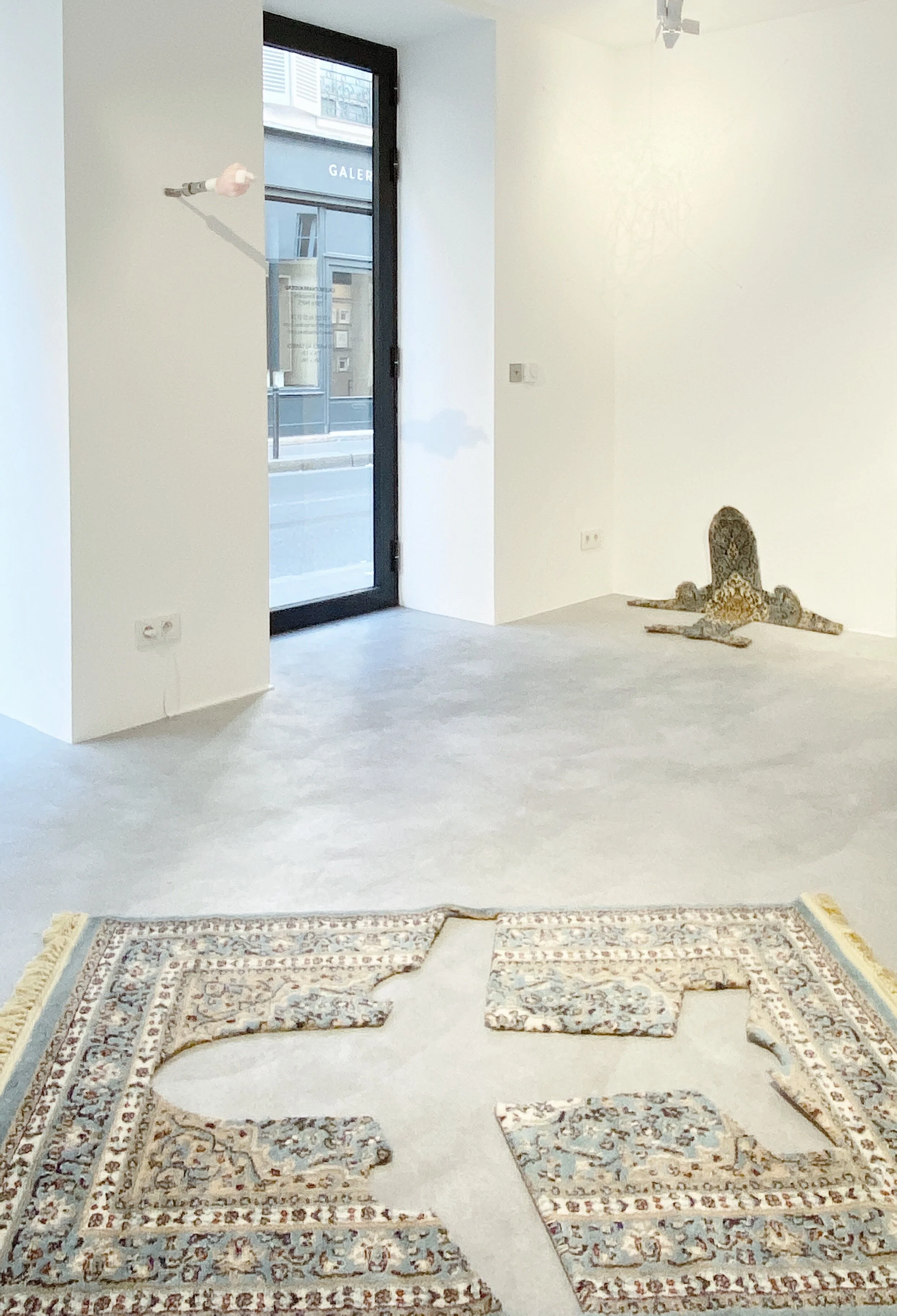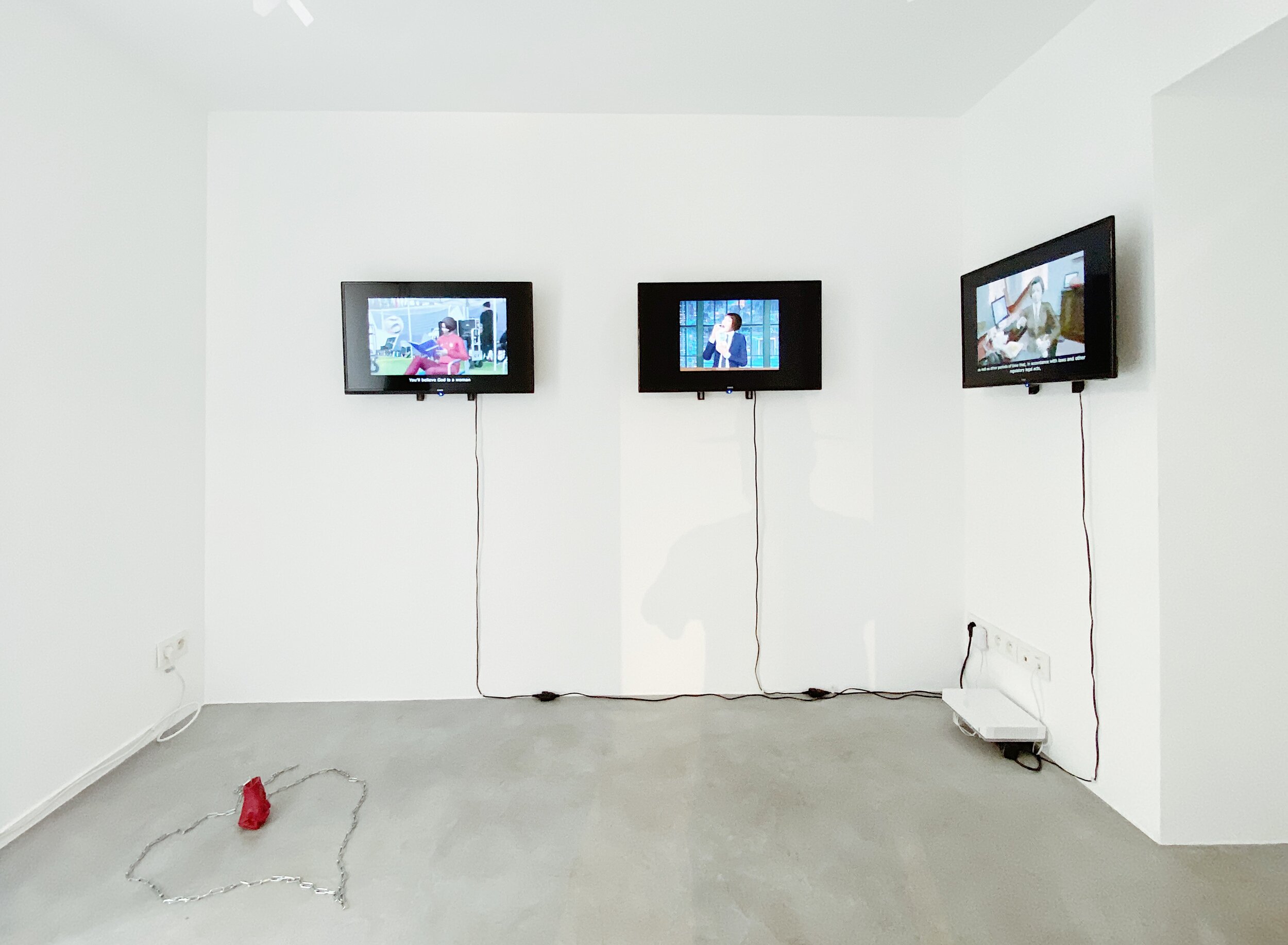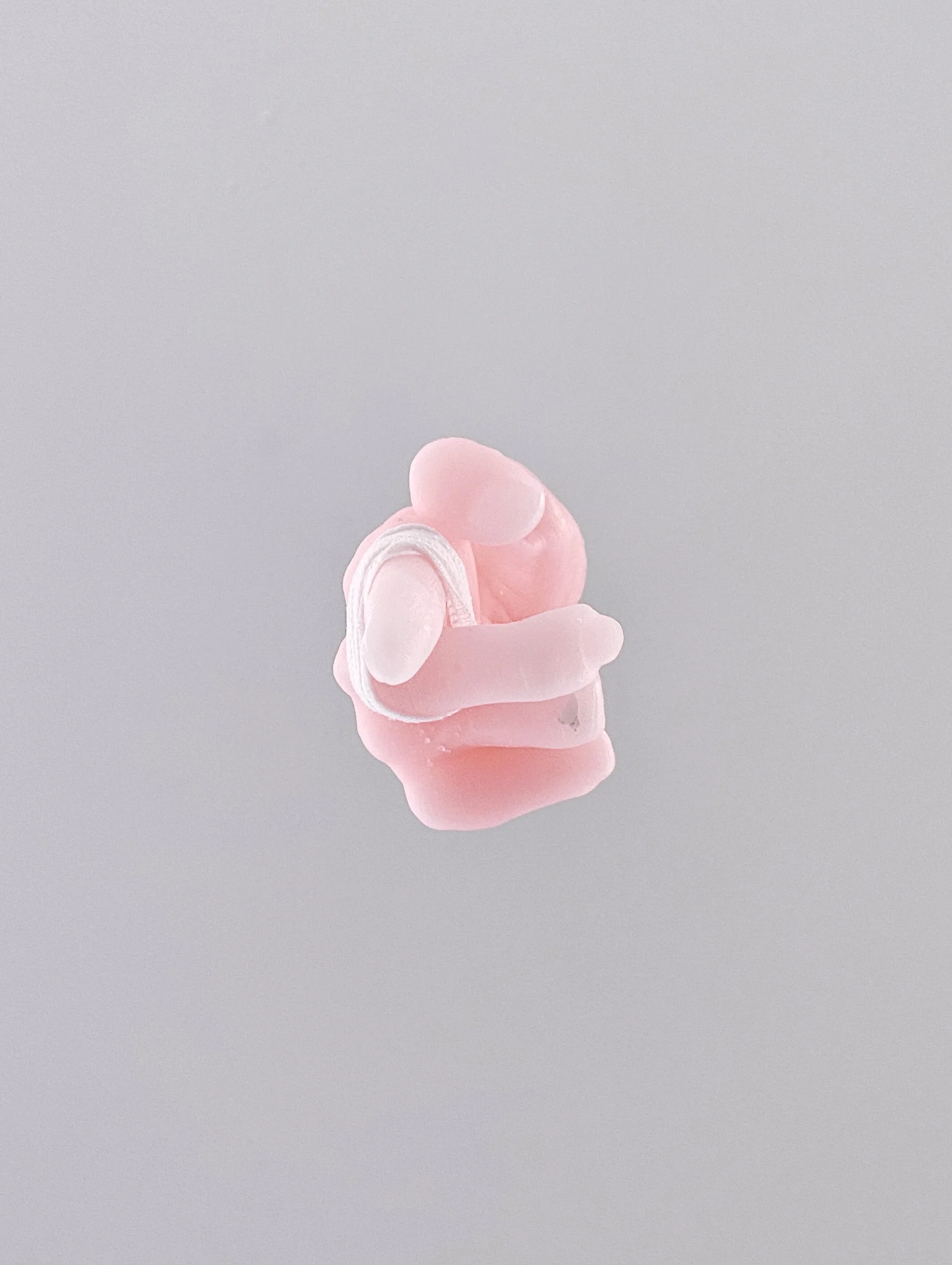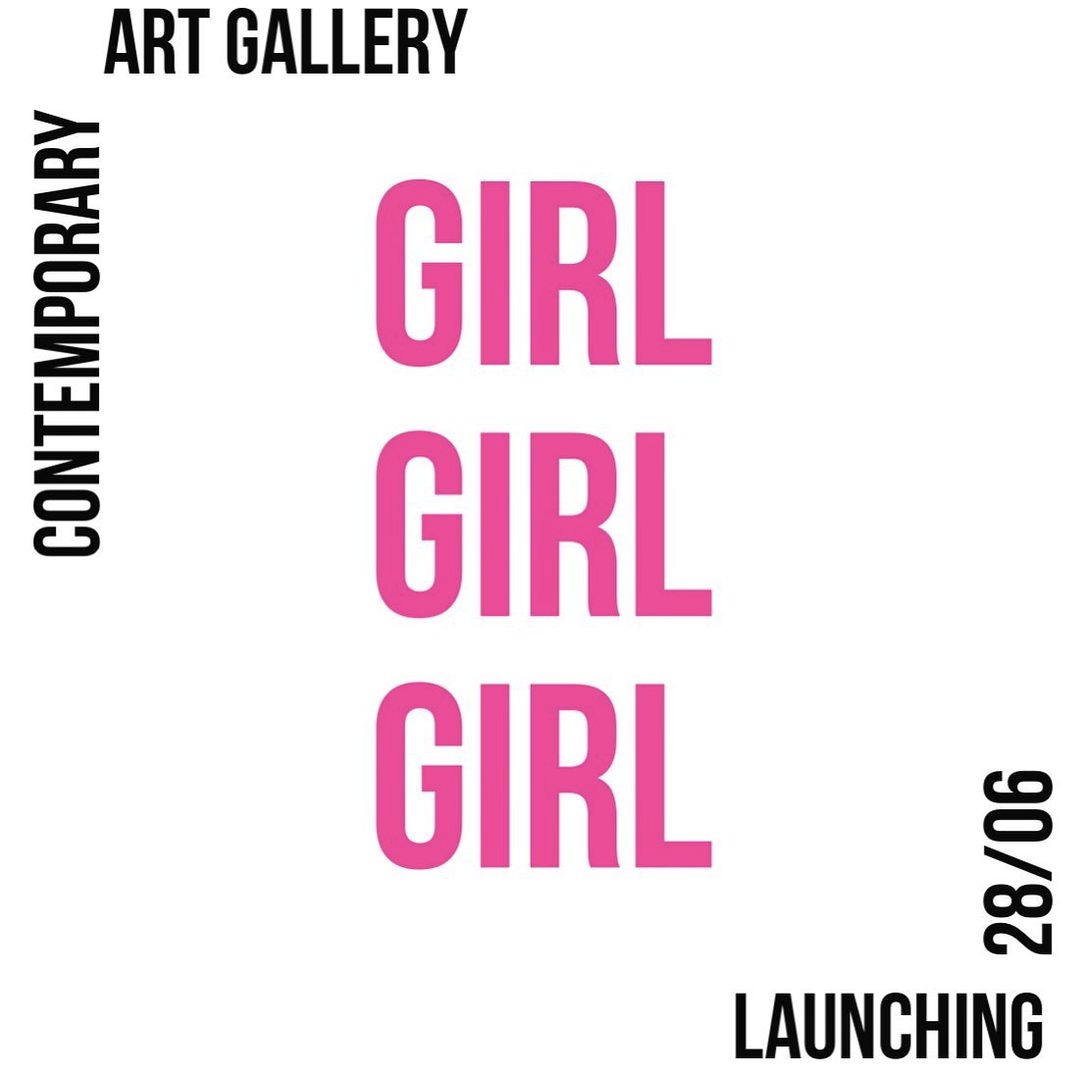Yulia, curator and founder of GIRLGIRLGIRL
Yulia Belousova is a daring woman, who is not scared to mix, create and do. Though Russian, she started her career in Europe and mostly lives in Berlin. But while locked down in Moscow last Spring, she cooked up a new project : GIRL GIRL GIRL is the first gallery representing only post-Soviet women artists. In October, the first group exhibition BON VOYAGE opened in Paris at the Galerie Charraudeau. Lucky enough to visit it before a second lock down, we saw works by artists from Russia, Georgia and Ukraine, such as Ekaterina Burlyga, Olya Kroytor, Katya Isaeva, Keta Gavasheli, Julia Tatarchenko, Apollinaria Broche and AFFF Collective.
Meet Yulia and her project GIRL GIRL GIRL.
Some of your projects are out of the ordinary art world. What is your touch? Which project, person or event influenced it?
Each project is meaningful to me, each time it brings a new energy to reach a new goal. I tend to set the bar higher and higher. My first trip to Art Basel was really significant. I just graduated from University in Hamburg and, while waiting for the results of my diploma, I went to Basel on my own. I knew very little about the fair because the focus of my studies was very far away from the art market. We collaborated with researchers, artists, curators, but bypassed auction houses and commercial galleries. Commerce was considered evil. I wanted to be clear about what Art Basel actually was. I bought a ticket and got on the plane. In Basel, I discovered by myself a completely new art world, the commercial side of it. Shock and insight simultaneously opened my eyes. The trip helped me understand that I want to be a guide between these two worlds.
Ephemeral Dinner "5" with artists Minor Alexander & Gregor Hildebrandt, an event curated and organized by Yulia Belousova
Do you think you managed to become a guide and find a balance between these worlds?
Not really. I work more on the institutional side of the art community. I never really went into commerce. But step by step, I somehow find a way.
On a personal note, why did you decide to leave Russia?
I didn't think about leaving. It happened that I graduated from a special school with a major in German, won a scholarship and left. Everything happened by itself.
Did you consider going back to Russia? Or did you realize that you are comfortable living and working in Germany?
At that time, having studied in Germany, it seemed logical to get my first work experience here. International galleries in Germany are mainly based in Berlin and I was hired by König Gallery. Therefore, I had no reason to return. I cannot imagine living without constant travel and working flights. For me, Europe is like one big country. I love Moscow and Russia very much as well, and actively cooperate. I have done many projects in Moscow. I try to support Russian artists in Europe and bring exhibitions from Germany to my homeland.
What are the difficulties you face, as an emerging Russian woman artist/curator living in Europe?
Berlin and Europe are very international. There are so many nationalities and mixed marriages that national identity plays a small role. At the same time, there are stereotypes and prejudices associated with the fact that I am a young professional woman from Eastern Europe. This is a rarity in the art world, where men rule the ball.
Which culture do you feel closer to ?
In my family I was raised as a person of the world. At that time, I did not really understand what it meant. The realisation came with time - I have no attachment to any city or country. Any culture has both pluses and minuses. Moving to Berlin was very easy at the age of 17, after school. I did not really understand what I was doing. The language barrier, of course, was present in the early years and there is a big difference in mentality with Germany. At the same time, I have never felt 100% identical to Russian culture. But when it comes to work issues, the work ethic is more comfortable for me in Germany.
Do you feel there is such a thing as a Russian identity or Eastern identity shared by the artists you work with?
As an art historian, I cannot tell that just based on the national identity of the artists. Contemporary art from Russia is scarcely represented in Europe, except for rare occasions and the Venice Biennale. At the Biennale, the "Russianness" of the pavilion is very visible to me personally. If we are talking about the young generation of artists, their work cannot be easily spotted as different from European artists. I also do not distinguish art by the geographical context. Each artist is a person, I look at the final result and at the work.
For the BON VOYAGE exhibition, I turned to the topic that speaks to any person from Eastern Europe. Whether this exhibition turned out to be “Russian” or not is not for me to judge. I am not trying to identify artists through their cultural background and I don't like geographic divisions. And here, it is a paradox that I have to use the definition “Eastern Europe” to make the concept of the GIRL GIRL GIRL Gallery more accessible to the European viewer.
Foreign viewers often interpret the works of our artists in a different way. For example, A. Brochet's carpet Far Away Realm Travel Kit, which for us (Russian ? Eastern visitors ?) is a symbol of magic, freedom of flight and fairy tales, while the European viewers, especially French, first associate it with 9/11. It is interesting. This is what the dialogue is based on. We are different, we read the works in different ways based on our experience, and this is exciting.
I agree that from an institutional point of view, identity or belonging to a country does not play a big role. But still, if you look at the art market and buyers' interest in Russian artists, then the situation is totally different.
For me everything related to the market is marketing. There is an undisguised interest in Russian art and the art of Eastern Europe. Everyone is very interested because it is an unknown and unexplored land. From a commercial point of view, of course, it is difficult, because people have not heard these names on the international stage. Russia does little to popularize local contemporary art abroad.
What tools, actions or actors are missing in Russia to help young artists ?
We need someone, like in China, to start investing and buying Russian art. We need more philanthropists to support artists. It is a matter of time. In my opinion, we are quite a young country.
What is your wish for yourself and Girl Girl Girl in the next 10 years ?
There was a plan, but the pandemic affected everyone. It is not clear what will happen to the world. The expression “Man proposes, but God disposes and laughs at our plans” is very relevant now.
Ideally, I want to do as many collaborations as possible in order to work with existing galleries. Space sharing is a new form of work in modern times. I also don't have a fixed list of artists. I am primarily a curator. The group of artists will be supplemented and expanded depending on the project.
In my dreams, of course, I would like to, someday, curate the Russian pavilion exclusively with art by female artists.
You named your new project Gallery. And for me this implies commercial activity. Now you say that you are primarily a curator. Is there a contradiction here?
I work on the basis of European experience and the classic concept of "gallery" entails responsibility, permanent exhibitions and press work for artists. In Russia, galleries can be called anything. I have a new format, a nomad gallery that both sells and popularizes the art of female creators from Eastern Europe. There is a division in this project - there is a gallery and there is me. And I'm primarily a curator. I would call it a curated project in the gallery space.
It seems like something very much in line with our times.
I try to constantly create something new, visionary. The classic gallery format is, in my opinion, outdated. Contemporary art must correspond to our times. By not having the opportunities that you would like to have, you can find a way out of the situation. In our time, dialogue, cooperation and mutual exchange are very important. From what seems impossible and difficult and where opportunities seem to be lacking, I try to turn it around and find a solution to the issue.
About feminism, sorority, sisterhood, solidarity : what word best defines Girl Girl Girl and why ?
Solidarity towards women artists. It's just mutual help. This is not against men, but for the support of women in society.
Any tips to share on being a young curator?
Don't be afraid to try new things and look for new ways. More often we start by looking for existing structures and models to build on. We are looking for someone else's experience. But in contemporary art, it's important to own your mistakes because they are your success. The more so-called mistakes - the more interesting. This is how I define success, because art should be ahead of all the rest. It should be something visionary, something to interpret in a new way. And by taking classical structures and schemes, working on them - we are not moving forward. I would encourage new curators not to be afraid of their ideas and innovations. Having said that, of course, you can seek advice from elders.
Which opinion is important to you? If you are told that what you came up with is stupid, do you dig further?
Most of the time, I was told that I was doing something stupid. In general, what is considered not stupid is aimed at financial success, with limited risk and stress. But all my projects are initially based on idealism, the bigger goal. Most people think by numbers, and by this standard, if there is no money involved, it is deliberately stupid. They ask me all the time - why are you doing this?
So, Why are you doing this? ☺
I create and do something, not because someone told me it's worth doing, but because I cannot do otherwise. Like an artist. He paints not because someone ordered a painting, but because he cannot do otherwise.
Do you think that there is a difference between male and female approaches in work with cultural projects? That the feminine approach is more about idealism and other values than about commerce ?
Interesting question. I didn't think about it from a gender perspective. It's hard to compare because there are more men in the commercial art world. Perhaps this is due to the old models where men were in control of finances. But now there are already more and more examples of women who are as financially successful as men in our sphere. Art history education is more interesting for women, and men often come from a financial background.
What is Art for you?
Art for me is emotions.

